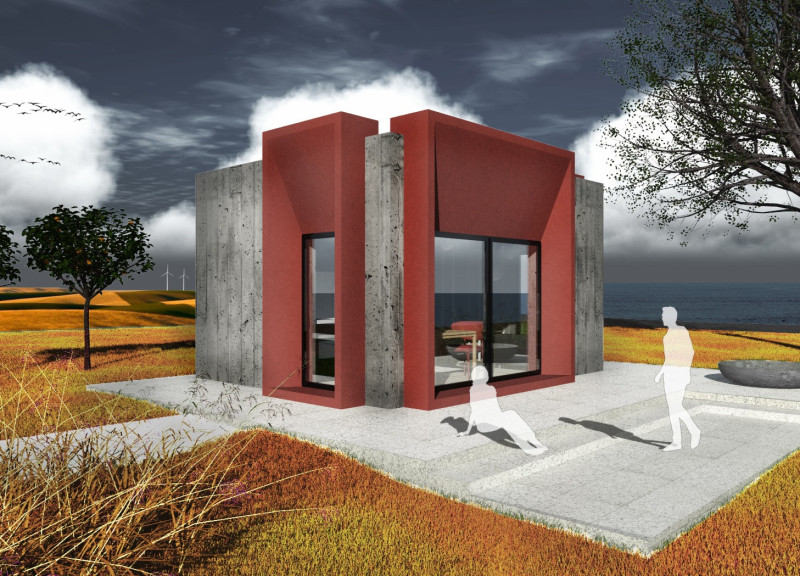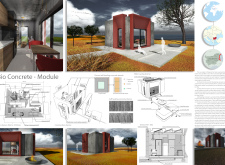5 key facts about this project
Architecture of the Bio Concrete - Module is characterized by its use of self-healing concrete, polymer concrete panels, and large glass elements. This combination not only enhances the structural integrity and aesthetic appeal but also promotes energy efficiency and water conservation. The size of the module, approximately 450 cm by 550 cm, allows for a versatile internal layout that can accommodate various living functions, including a kitchen, bathroom, and sleeping area.
Innovative Water Management Techniques
One of the defining features of this project is its advanced water management system. The Bio Concrete - Module incorporates a self-cleaning water system that efficiently collects and recycles rainwater, significantly reducing reliance on external water sources. This system is complemented by an electric pump that ensures optimal water distribution throughout the unit. The integration of these technologies reflects a commitment to sustainability and resource conservation, setting this project apart from conventional housing designs.
Maximizing Energy Efficiency and Sustainability
The architectural design of the Bio Concrete - Module focuses on maximizing energy efficiency. Strategic orientation and window placement harness natural sunlight, minimizing the need for artificial heating or cooling. The use of self-healing concrete enhances durability, reducing maintenance and reinforcing the structure's longevity. This thoughtful consideration of materials and energy usage positions the project as a practical solution for contemporary living, particularly in regions facing resource limitations.
This project encapsulates a comprehensive vision of architecture that meets current environmental challenges. For an in-depth understanding of the Bio Concrete - Module, including architectural plans, sections, and design ideas, consider exploring the project presentation for further details.























